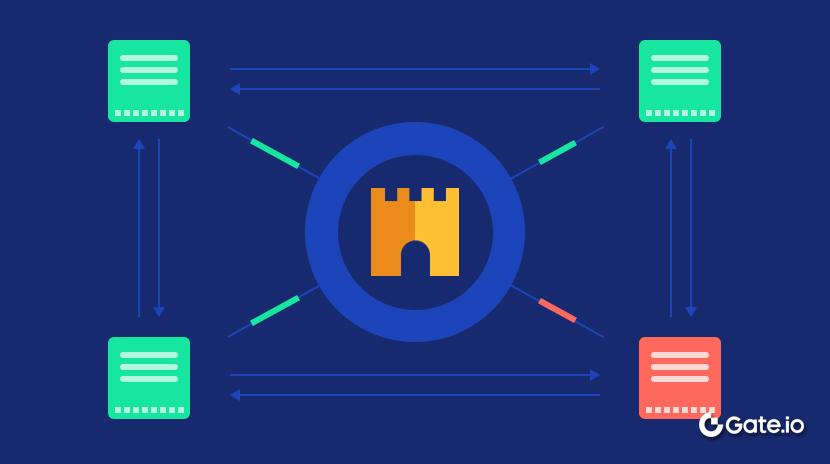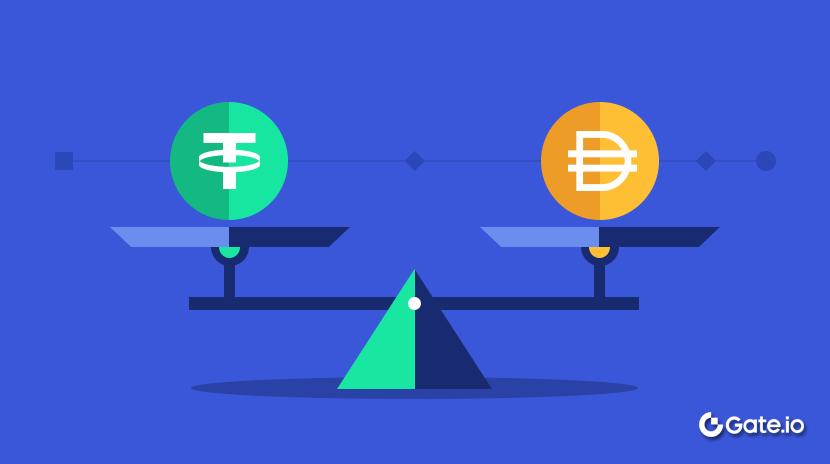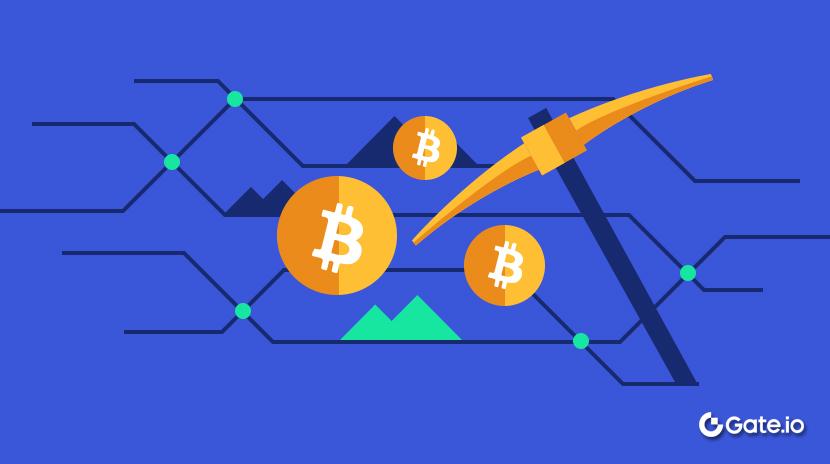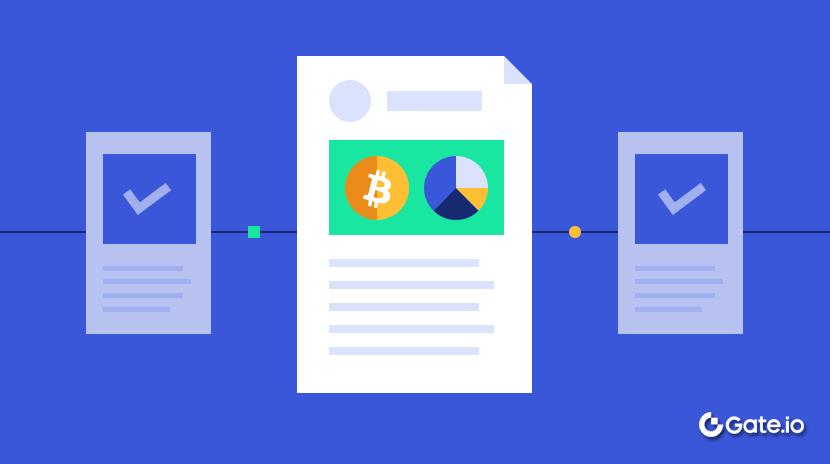トルネードキャッシュ制裁取消:暗号資産のマイルストーン
この記事では、Web3の法律実務家の観点からトルネードキャッシュ事件の意義を分析し、OFACの規制および執行権の源泉、不変スマートコントラクトの定義、および分散型ネットワークの将来的な発展傾向を調べます。元のタイトルを転送しました:Tornado Cashの勝利:分散ネットワークの発展の道を切り拓く

2024年11月26日、米国第5巡回区控訴裁判所は、米国財務省のTornado CashへのOFAC制裁は違法であり、法的権限を超えていると判決を下しました。Coinbaseの最高法務責任者であるポール・グリーウォールは、「これは暗号資産業界と自由を守りたい人々にとって歴史的な勝利です。」と述べました。
誰も犯罪者が暗号資産プロトコルを使用することを望んでいませんが、議会が制定した法律は規制当局に悪意を持つ一部のユーザーのために完全に技術中立のオープンソースコードをブロックする権限を与えていません。権限を超えた規制執行は制限される必要があります。
控訴裁判所は、OFACが違法な活動を禁止する正当な根拠を持っている一方で、不変のスマートコントラクト(プライバシーをサポートするソフトウェアコードの一部)であるTornado Cashは、外国人や団体の「財産」を構成しないと明確にした。これは、(1)法的にブロックすることはできず、(2)OFACが議会に付与された法定権限を超えていることを意味します。
この判決は、暗号資産業界にとって画期的です。これは不変のスマートコントラクトの定義を確立するだけでなく、複雑なグローバル規制環境を航行する業界にとってのガイダンスと方向を提供します。
この記事は、Web3法律専門家の視点から書かれたもので、Tornado Cash事件の重要性を分析しています。OFACの規制権限の出所、変更不能なスマートコントラクトの定義、および分散型ネットワークの将来の開発動向について検討しています。

1. Tornado Cashとは何ですか?
Tornado Cashは、Ethereum上のよく知られた通貨混合アプリであり、ユーザーに取引のプライバシー保護を提供することを目指しています。デジタル通貨の取引の送信元、宛先、相手先を混乱させることにより、プライベートで匿名な取引を実現しています。
Tornado Cashは様々なトークンタイプの取引(ユーザーの預入れ)を受け付けています。ゼロ知識証明(ZKP)技術を応用したスマートコントラクトにより、取引を混合して預入れと引き出しアドレスの公開リンクを切断します。その後、資金は相手方(ユーザーの引き出し)に送信され、取引のプライバシーが確保され、ユーザーのアクティビティがオンチェーンで監視されるのを防止します。
Tornado Cashのミキシングスマートコントラクトには、2つの貴重な機能があります: プライバシー(匿名のデジタル取引)と変更不能性(ソフトウェアコードは、作成者でさえ所有、制御、または変更することはできません)。
オンチェーンウォレットは技術的に匿名ですが、ウォレット間の取引は追跡可能であり、ブロックチェーン上に永久に記録されます。特定のテクニックを使えば、意志のある個人はウォレット取引記録を現実世界の身元にリンクさせることが可能であり、これは重大なプライバシーのリスクをもたらします。Tornado Cashは、ウォレット間の取引履歴を断ち切ることで、ウォレット所有者のプライバシーを保護します。

(トルネードキャッシュ事件)
2. Tornado Cash制裁の背景
Tornado Cashは、中立的な技術の革新的なアプリケーションとして、合法的なユーザーがトランザクションのプライバシーを保護するのを助ける一方で、マネーロンダリングなどの違法な目的で悪意のあるユーザーが使用することを防ぐことはできません。
2022年8月8日、トルネードキャッシュはアメリカ財務省外国資産管理局(OFAC)によって制裁を受けました。制裁は、トルネードキャッシュプロトコル、37個のトルネードキャッシュスマートコントラクト(少なくとも20個のイミュータブルスマートコントラクトを含む)、寄付アドレスを「エンティティ」として指定し、制裁リストに掲載しました。この措置は、北朝鮮のハッキンググループがマネーロンダリングを含むサイバー犯罪にトルネードキャッシュを使用したとされたためです。
3ヶ月後、OFACは、トルネードキャッシュプロトコルに関連する53のイーサリアムアドレスに対する制裁を含む新しいガイダンスを発行しました。このガイダンスでは、トルネードキャッシュはそのDAO(分散型自治組織)によって運営される実体として識別されました。これを受けて、OFACはトルネードキャッシュの実体の米国管轄下の「すべての不動産、個人財産、その他の資産、および財産権利」をブロックしました。
Tornado Cashを特定国民及びブロックされた者(SDN)リストに追加することで、OFACはTornado Cash関連の「財産」を巡る取引に包括的な禁止措置を課しました。OFACの「財産」の定義には、「スマートコントラクト」として知られるオープンソースのコンピューターコードも含まれていました。
これにより、SDNにリストされたオンチェーンアドレスへの個人や団体のいかなる相互作用も違法です。OFACの当時のプレスリリースによると、2019年以来、Tornado Cashを通じて70億ドル以上の不正資金が洗浄されていました。OFACは、Tornado Cashが米国内外の違法なサイバー活動に対する実質的な支援、スポンサーシップ、財政的および技術的支援を提供していたと述べています。これらの活動は、米国の国家安全保障、外交政策、経済的健康、金融の安定性に重大な脅威をもたらし、それがOFACの制裁につながりました。
3. 最初の判決:OFACの権限は合法と判断された
Coinbaseの資金提供による初審判決では、Tornado Cashの6人のユーザーがOFACを訴えました。彼らの主な主張——そして後に控訴で維持された唯一の主張——は、OFACがTornado Cashに制裁を科す権限を持たないことによって、米国行政手続法に違反しているというものでした。彼らは、(1) Tornado Cashは外国の「国籍」または「人物」ではない、(2) 不変のスマートコントラクトは「財産」ではない、および(3) Tornado Cashは不変のスマートコントラクトに「利益」を持っていないと主張しました。
一審裁判所はTornado Cashユーザーの申立てを退け、結論は次のとおりです:(1)Tornado Cashは法律の下で個人として指定される可能性のある「実体」であり、(2)スマート契約は「財産」を構成し、(3)そしてKNIFEのTornado Cashはスマート契約に「ステーク」を持っており、スマート契約で実行されるサービスから利益を得ているためです。
この判決は、特に技術的に中立なツールである「スマートコントラクト」の分類に関して、重大な論争を引き起こしました。また、Web3空間におけるプライバシーと金融規制についても疑問を投げかけました。スマートコントラクトが「財産」と定義された場合、それはアメリカ合衆国憲法の下での言論の自由とプライバシーの権利を侵害する可能性があります。
幸いなことに、最近の控訴裁判所の判決は明確な答えを提供し、分散型ネットワークの発展にとってより明るい未来を提供しました。

(Tornado Cashのインシデントから、暗号資産に対するUS OFACの規制ロジックを見てみましょう)
4. 第2審:控訴裁判所の判決により、不変のスマートコントラクトの定義が明確化
2024年11月26日、控訴裁判所は地方裁判所の判決を覆し、OFACの制裁を違法であるとし、その法的権限を超えていると宣言しました。
この事件の鍵となる問題は、Tornado Cashがデジタル資産取引のためのオープンソースの暗号化されたプロトコルとして、OFACの規制枠組みの下で「財産」または「権益」として認められるかどうかでした。
回答が「いいえ」である場合、OFACにはTornado Cashに制裁を課す権限がありません。
OFACの規制執行権は、大統領に、外国の「国民」、「個人」、または「実体」が所有する「財産」または「利益」を規制(またはブロック)する権限を与える、国際緊急経済権限法(IEEPA)と北朝鮮制裁及び政策強化法に由来しています。
IEEPAは、米国の現代の制裁体制の重要な構成要素であり、米国の国家安全保障に脅威と見なされる外国の行為者の資産を凍結し、それらとの取引を禁止する大統領の権限を認可しています。この広範な権限は、財務省のOFACによって実行されており、さまざまな経済制裁プログラムを監督しています。
これらの権限を通じて、OFACは自身の規制で「個人」「実体」「財産」「利益」といった用語を定義しています。また、制裁の影響を受ける個人が指定を争うための手段や、凍結された資産に関与する取引のためのライセンスを申請するための経路も提供しています。
4.1 不変なスマートコントラクト
控訴裁判所は判決で、すべてのスマートコントラクトを「財産」として取り扱った地方裁判所の一括分類を避けるために、異なる種類のスマートコントラクトを区別しました。
スマートコントラクトは、以下の2つのタイプに分けることができます:(1)ミュータブルスマートコントラクトは通常1つ以上のエンティティによって制御されます。(2)イミュータブルスマートコントラクトは誰にも制御されることはありません。スマートコントラクトがイミュータブルになると、誰もそれを制御することはできません。
分散化されたオープンソースソフトウェアプロトコルであるTornado Cashは、最初に2019年に開発者グループによって発表されました。当時、一部のスマートコントラクトは変更可能でしたが、2020年に開発者たちは「信頼されたセットアップセレモニー」を開始して制御を手放しました。1,100人以上のユーザーがこのプロセスに参加し、少なくとも20のスマートコントラクトが不可逆的に変更不能になりました。
その結果、Tornado Cashは自治システムに変わりました。つまり、変更、削除、または制御できないコンピューターコードです。ソフトウェアプロトコルは人間の介入なしにブロックチェーン上で独立して動作し、Tornado CashネットワークはDAO(分散型自律組織)によって運営されています。
4.2 OFACの制裁の根拠
Tornado Cashは中立なプロトコルですが、ほとんどのユーザーは、ウクライナの戦争努力に匿名で寄付したり、ハッカー攻撃を回避するなど、合法的な目的で使用しています。しかし、悪意のあるユーザーが不正な利益を洗浄するために利用することを効果的に防ぐことはできません。
この違法行為の制限の不可能性がOFACの関与の理由です。国際緊急経済権限法(IEEPA)に基づき、大統領は「国家非常事態」を宣言した後、主に米国外で起こる「異常で特異な脅威」が米国の国家安全保障、外交政策、経済にリスクをもたらす場合、特別な経済権限を与えられます。これらの権限には、「外国の国またはその国民が利害を持っているすべての財産」の凍結が含まれます。
4.3 トルネードキャッシュは財産とは見なされません
法律は大統領に外国の「国籍」、「個人」、または「法人」が「利益」を持つ「財産」に対して規制および措置を執行する権限を与えていますが、控訴裁判所は不変のスマートコントラクトを「財産」または「利益」として分類することはできないとは意見しませんでした。
「財産」は、所有可能な資産であり、資産を支配し、他者を排除し、処分する権利を含む明確な所有権を持っている必要があります。
財産には明確な定義があります:所有できるものです。財産には、「法的に所有されるもの、有益なもの、または私有のものであるかもしれないすべて」が含まれます。これは「ある人または人々に所有される状態」を定義しており、「何かを所有し、使用し、処分する権利」を包括しています。さらに、それには他の誰もが干渉することを排除する権利も含まれています。
この場合、不変のスマートコントラクトによって表されるTornado Cashは明らかに誰の所有物でもありませんし、誰もそれの利用を除外されることはありません。証拠は、OFACがTornado Cashに制裁を課した後も、ユーザーが依然としてその基盤となるスマートコントラクトにアクセスして相互作用することができたことを示しています。
「変更不能なスマートコントラクトは、インターネット接続を持つ誰にでもアクセス可能です。」
4.4 Tornado Cashは契約でもサービスでもありません
OFACは、不変のスマートコントラクトが契約権やサービス権などの「財産」に関連する「利益」を構成する可能性があると主張しました。しかし、控訴裁判所は、スマートコントラクトは「スマートコントラクト」と呼ばれているものの、実際の契約ではないことを明確にしました(スマートコントラクト自体が契約ではありません)。
契約は取り消し可能な2者または複数者間の相互合意です。明らかに、スマートコントラクトは単なるソフトウェアコードであり、提案を行ったり、取り消しのような契約上の権利を行使することはできません。これには法的な当事者の行為が必要です。同様に、変更できないスマートコントラクトはコードを変更したり、削除したり、Ethereumブロックチェーンから削除されることはありません。スマートコントラクトは単にユーザーとソフトウェアコードとの相互作用です。
同様に、サービスは「通常は支払いを受け取るために、他者の利益のために何らかの有益な行為または一連の行為の実施」と定義されます。 この場合、スマートコントラクトは単なるコンピューターコードであり、他者の利益のために行動を起こすことも利益を得ることもできません。
Tornado Cashのスマートコントラクトは、単なるサービスの提供に使用されるツールであり、サービスを提供したり、これらのコントラクトを制御したりするものではありません。(変更不可能なスマートコントラクトは、所有可能ではないため、所有物ではなく、契約でもサービスでもありません。)
4.5控訴裁判所の判決
その結果、控訴裁判所は地方裁判所の判決を覆し、OFACの規制執行が法的権限を超えていると結論づけました。
裁判所は述べています:"我々は、現実世界における一部の規制されていないおよび制御できない技術のデメリットを認識しています。 1977年にIEEPAの制定をもたらした悪質なサイバー活動に取り組むため、現代のインターネットの発明よりも数年前に行われました。大統領と政府が対処するのは完全に適切です。"
ただし、法律は大統領や政府機関にさまざまな経済取引を規制する広範な権限を与えていますが、この権限は無制限でも拡張可能でもありません。
5. 分散化ネットワークの勝利
控訴裁判所の判決にすぎないため、OFACは最高裁判所にこの事件を持ち込む権利があるものの、控訴審決定における不変のスマートコントラクトに対する強い理論は、覆すことが困難になっています。
Coinbaseが適切に述べたように:オンチェーンは新しいオンラインです。分散型プロトコルやネットワークがますます多くの人々に到達するにつれて、従来の完全に許可なしのオンチェーン活動の性質は、法的合法性とコンプライアンスの向上に向けて進化する必要があります。中立的な視点から技術革新を促進し、規制を施行するというバランスを取ることは、立法者や規制当局にとって重要な課題です。
それにもかかわらず、GrayscaleのSECへの勝利がビットコインETFの承認の道を開いたように、Tornado Cashの事件は分散型ネットワークのさらなる発展の道を開いた。
プーチン大統領はかつて言いました:ビットコインや他の電子支払システムは、新しい技術として完全に禁止されることはできません。コスト削減や取引信頼性の向上という利点を提供するため、これらは進化し続けるでしょう。

(OFACとFinCENから、Web3のプライバシーと金融規制の間の対立を見てください)
参考文献:
[1] Tornado Cash Case
[2] トルネードキャッシュ訴訟の勝訴経緯とその重要性
https://x.com/laurashin/status/1864031301029732727
免責事項:
- この記事は[から再現されていますWeb3の小さなルール]. 元のタイトルを転送しました: トルネードキャッシュの勝利: 分散ネットワーク開発の道を開く。著作権は元の著者[ウィルアワン]に帰属します。転載に異議がある場合は、お問い合わせくださいゲートラーンチーム、チームは関連手続きに従ってできるだけ早く対応します。
- 免責事項:この記事で表現されている意見は、著者個人の意見を表しており、投資アドバイスを構成しません。
- gate Learnチームは、記事を他の言語に翻訳しました。翻訳された記事のコピー、配布、または盗用は、明示されていない限り禁止されています。
関連記事


ブロックチェーンについて知っておくべきことすべて

ステーブルコインとは何ですか?

流動性ファーミングとは何ですか?

分散型台帳技術(DLT)とは何ですか?
